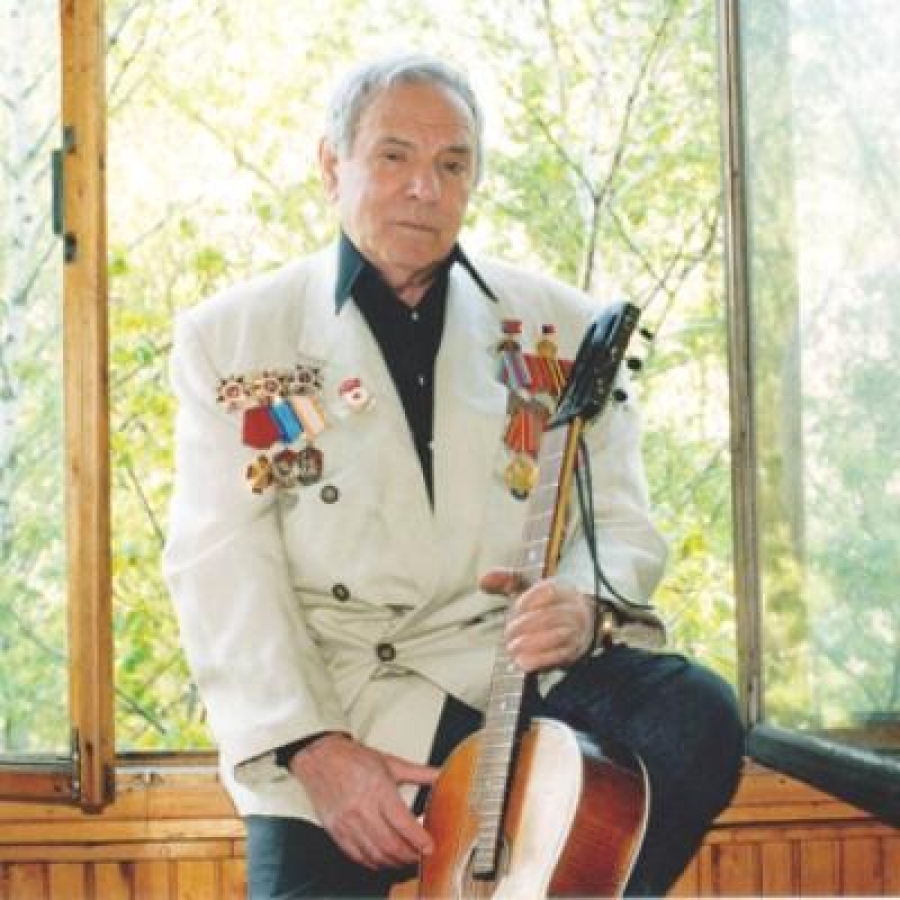The famous film director, screenwriter, composer, and actor Piotr Todorovskii, was born in Bobrynets, in the Ukrainian SSR, in 1925. Life in a small Ukrainian town, including his experience of the famine of 1932-1933, that not only created the most terrible situation in rural areas but also caused hardship in more urban areas, influenced his view of life. Todorovskii completed nine years of school in Bobrynets.
He was 16 years old when the Soviet-German war began and he was evacuated to Stalingrad together with his family. There he worked, together with his father, as a coal unloader at a power plant. In November 1941, Todorovskii was forced to flee with his parents to the Saratov region, where he worked on a collective farm for almost two years.
Piotr Todorovskii joined the Red Army in April 1943. He became a cadet at the Saratov military infantry school in the summer of that year. In August 1944 he commanded a mortar unit (in the 2nd Battalion of the 93rd Infantry Regiment of the 76th Infantry Division of the 125th Rifle Corps), of the 47th Army of the First Belorussian Front. His highest rank was that of lieutenant. He participated in the capture of Warsaw, Bydgoszcz, and Stettin and in the battle of Berlin. He was wounded once in the course of the war.
Piotr Todorovskii was awarded the Order of the Patriotic War, 1st and 2nd Class, and the medals: For the capture of Berlin, For the liberation of Warsaw, and For Victory over Germany, as well as others. In the citations for his military honors, the Jew Todorovskii was once referred to as a Russian and another time as a Ukrainian.
In his memoir, Todorovskii wrote "The best part of war was at the Elbe at May 8, 1945! The silence was amazing. There was only silence. We had been engaged in heavy fighting before we reached the bridge and the Americans had already reached the opposite bank. And then…. silence, and the river, and the grass, and singing birds... We wallowed in the grass together with our horses, took off our smelly foot-wraps, and could not believe that we were still alive. This silence was the inspiration my screenplay "Deafened by Silence."
From the end of the Soviet-German war until 1949, Todorovskii was stationed at a garrison near Kostroma. Then, when he was removed from active service to the reserves, he began working at a glass factory while, at the same time, completing his primary education, which had been interrupted by the war.
During the war, Piotr Todorovskii was affected by the work of military cameramen. He decided that if he survived, he would learn the skills that they had mastered. Eventually, this dream was realized.
In 1954, he graduated from the filmmaking faculty of the Gerasimov Institute of Cinematography. For many years after that, he worked as a cameraman.
His film "Wartime Romance," based on his own experience, was nominated for an "Oscar" at the American Film Academy Awards in 1983.While World War II was presented by Soviet ideology in a propagandistic vein, Todorovskii presented war in a more realistic manner, with both its horrors and its daily grimness. He said, "The war does not release its hold on me. I don't know, I was 19, the age when you soak up many things very quickly… .later I made films not about war but about people at war. Only that interests me."
Todorovskii was the director, screenwriter, and cameraman for many movies. He also starred as an actor and wrote music for films created by other filmmakers.
Piotr Todorovskii died in May 2013. He was buried in Moscow's Novodevichy Cemetery.







